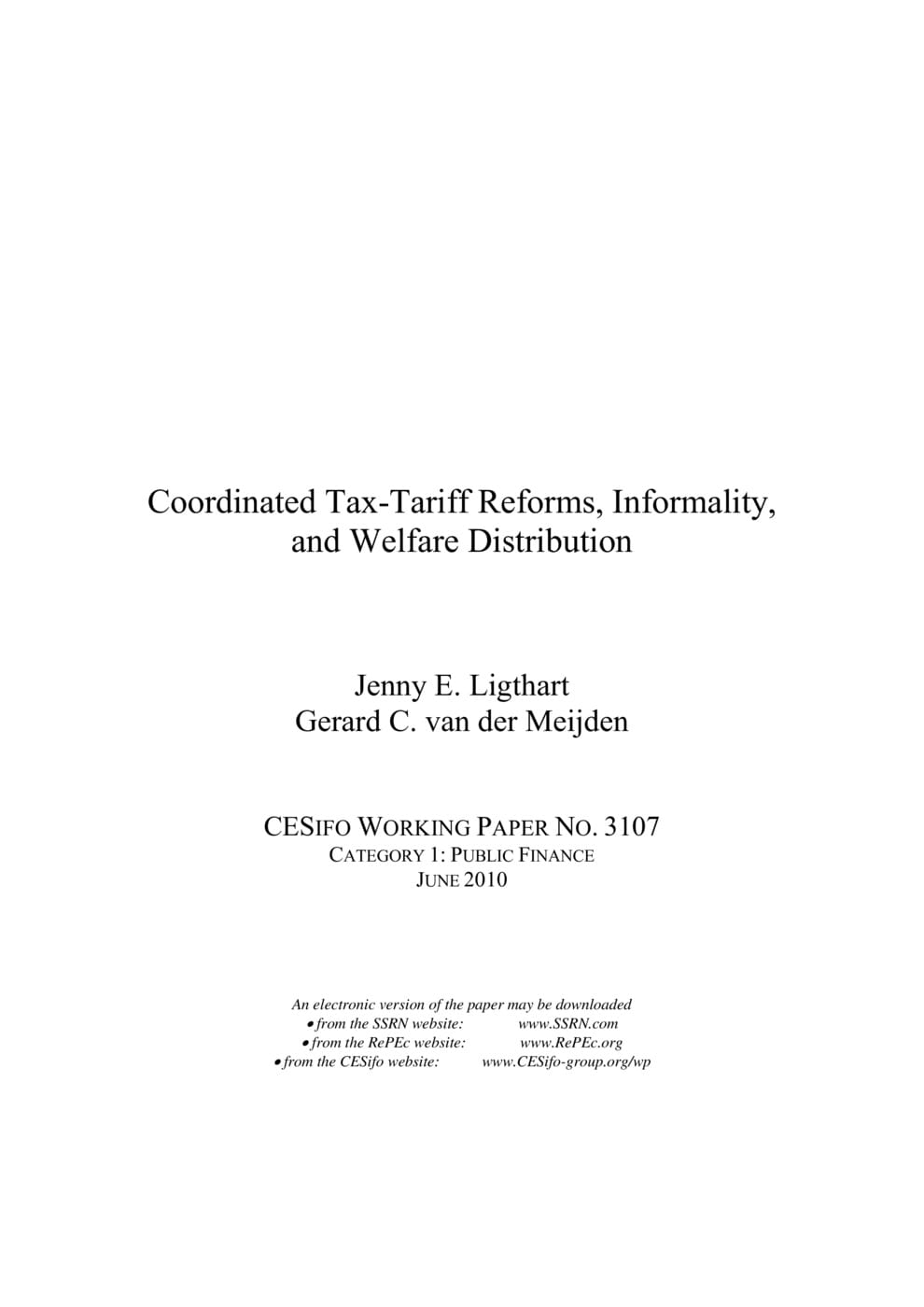Coordinated Tax-Tariff Reforms, Informality, and Welfare Distribution
CESifo, Munich, 2010
CESifo Working Paper No. 3107

The paper studies the revenue, efficiency, and distributional implications of a simple strategy of offsetting tariff reductions with increases in destination-based consumption taxes so as to leave consumer prices unchanged. We employ a dynamic micro-founded macroeconomic model of a small open developing economy, which features an informal sector that cannot be taxed, a formal agricultural sector, and an import-substitution sector. The reform strategy increases government revenue, imports, exports, and the informal sector. In contrast to Emran and Stiglitz (2005), who ignore the dynamic effects of taxes and tariffs on factor markets, we find an efficiency gain, which is unevenly distributed. Existing generations benefit more than future generations, who - depending on pre-existing tax and tariff rates and the informal sector size - even may become worse off.
Public Finance